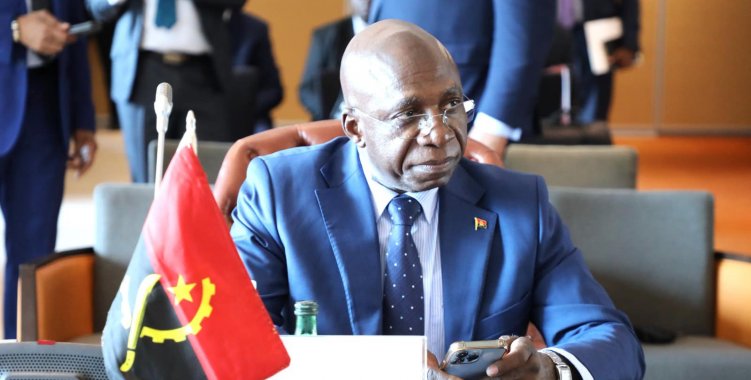Téte António spoke to the press at the Presidential Palace in Luanda, where the tripartite summit with the Angolan (mediator of the peace process), Congolese and Rwandan presidents was to take place this Sunday, which was canceled due to the lack of attendance by the President of Rwanda, Paul Kagame.
The President of the Republic, João Lourenço, however, held a meeting with his counterpart from the Democratic Republic of Congo (RD Congo), Felix Tshisekedi, and with the former president of Kenya, Uhuru Kennyatta, as a facilitator of the Nairobi Process, led by the East African Community (EAC) and complementary to Luanda's diplomatic efforts to achieve an environment of peace and stability in the region.
Speaking to journalists, the head of Angolan diplomacy said that the agreement presented by João Lourenço for negotiation between DRCongo and Rwanda is negotiated "at 99 percent" and involves three issues, the first of which is related to the disengagement of forces, the second on the neutralization of the Democratic Forces for the Liberation of Rwanda (FDLR) and the third on the M23, an armed group that operates in eastern DR Congo and which Kinshasa says is supported by Kigali, which "has been the subject of disagreement between the parties".
According to Téte António, the last paragraph was negotiated at ministerial level on Saturday "until very late", and it was not possible to reach "a convergence of points of view".
Three points are at issue: the mechanism for dealing with the issue, the designated facilitator and their mission.
The minister added that there is convergence regarding the mechanism, which should be the Nairobi process, and regarding the figure of the facilitator (Uhuru Kenyatta), but not regarding its mission, as one of the parties defends a method of negotiation through an intermediary and the other wants direct contact between the parties.
"In view of this divergence of point of view related to the M23 issue, one of the parties requested the postponement of the summit until there is, therefore, a common language in relation to this aspect that I just mentioned", highlighted Téte António.
Meanwhile, João Lourenço held consultations on Sunday with President Tshisekedi and President Kenyatta to see how he will "move along with the process in the coming days", added Téte António, considering that this is also an important issue for the pacification of DR Congo.
The Congolese presidency blamed the Rwandans for the summit's failure, saying the annulment was due to the Rwandan delegation's refusal to participate in the meeting aimed at ending hostilities in eastern DR Congo by "withdrawing Rwandan troops from Congolese areas".
The Rwandan presidency has not yet commented on Paul Kagame's absence.
Last month, DR Congo and Rwanda had reached agreement on a plan to dismantle the FDLR rebel group.
This is a fundamental step on the path to peace in eastern DR Congo, where dozens of rebel groups operate, as the end of the FDLR is a demand of the Rwandan Government, which collaborates with the March 23 Movement (M23), which is in conflict with the regular Congolese army.
Although Rwandan authorities deny Kigali's alleged collaboration with the M23, this fact has been confirmed by the UN.
In a report released in July, researchers from the United Nations Security Council stated that there were 3000 to 4000 Rwandan soldiers fighting alongside M23 rebels against the Congolese army in eastern DR Congo.
According to investigators, the Rwandan army took "in fact control and direction of M23 operations" and its military intervention "was decisive for the significant territorial expansion achieved between January and March 2024".
In turn, Rwanda and M23 accuse the Congolese army of cooperating with the FDLR rebels, founded in 2000 by leaders of the 1994 genocide and by other Rwandans (Hutus) exiled in DR Congo, to regain political power in their country, collaboration also confirmed by the UN.
On July 30, delegations from DR Congo and Rwanda signed a ceasefire agreement in Luanda between the Congolese armed forces (FARDC) and the M23, which came into force in the early hours of August 4 and was violated on several occasions.
M23's armed activity was reactivated in 2022 after years of relative calm, and since then the group has advanced on several fronts to position itself near the city of Goma, on the shores of Lake Kivu, which it occupied for ten days in 2012.
Since 1998, eastern DR Congo has been mired in conflict fueled by rebel militias and the army, despite the presence of the UN peacekeeping mission in the country.







